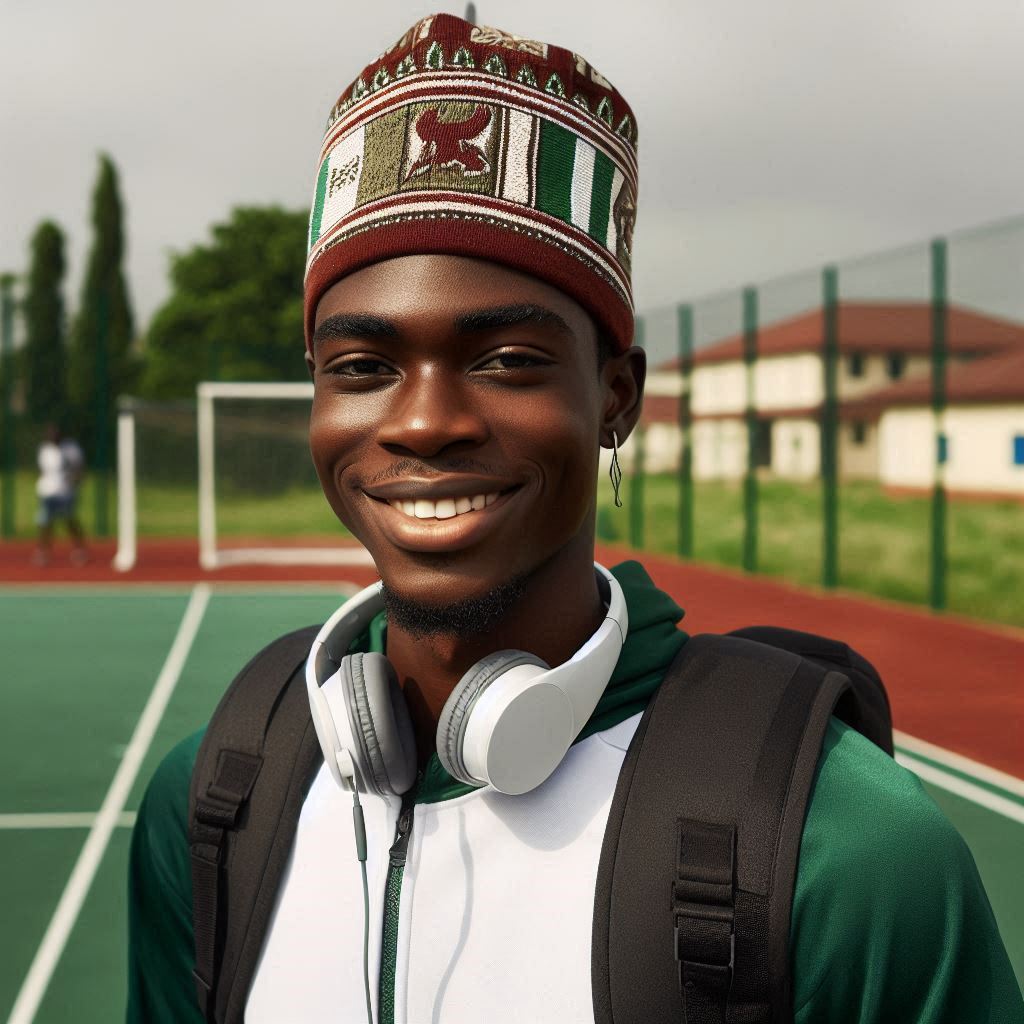Introduction
Sport science is a multidisciplinary field that involves studying the principles of exercise, nutrition, and psychology related to sports performance.
Internships and training play a crucial role in providing practical experience and skills needed in the sport science industry.
Internships and training in sport science help individuals gain hands-on experience in working with athletes, conducting research, and applying theoretical knowledge in real-world settings.
This practical exposure is essential for students and professionals looking to pursue a career in sports science.
In Nigeria, the field of sport science is still emerging, with limited opportunities for internships and training programs.
However, as the awareness of the importance of sports science in improving athletic performance and preventing injuries grows, there is a growing demand for qualified professionals in the field.
Despite the current challenges, there are several organizations, universities, and sports institutions in Nigeria that offer internships and training opportunities in sport science.
These programs aim to groom young talents, build expertise, and contribute to the development of sports science in the country.
As the interest in sports science continues to grow in Nigeria, there is a need for more internships and training programs to bridge the gap between theoretical knowledge and practical skills.
By providing hands-on experience and mentorship, these programs can help aspiring sport scientists excel in their careers and contribute to the growth of the sports industry in Nigeria.
The Need for Sport Science Professionals in Nigeria
With the increasing interest in sports and athletics in Nigeria, there is a growing demand for sport science professionals to enhance performance and prevent injuries.
Role of Sport Science Professionals
Sport science professionals play a crucial role in optimizing athletic performance by analyzing biomechanics, nutrition, and psychology.
They work closely with coaches and athletes to design customized training programs based on scientific principles to maximize results.
Furthermore, sport scientists utilize advanced technologies such as motion capture systems and wearable sensors to collect data for performance analysis.
Comparison with Other Countries
Compared to other countries with advanced sport science programs like the United States, Nigeria is still developing in this field.
In countries with established sport science systems, professionals have access to state-of-the-art facilities and resources for research and training.
These countries have a long history of investing in sports science, resulting in better performance outcomes and reduced risk of injuries for athletes.
As the interest in sports continues to grow in Nigeria, the need for qualified sport science professionals is more important than ever.
By investing in education and training programs in sport science, Nigeria can elevate its athletic performance to compete on a global level.
Read: Funding and Scholarships for Sport Science Students
Opportunities for Sport Science Internships in Nigeria
Sport science internships provide invaluable experience for students and recent graduates seeking to enter the sports industry.
In Nigeria, several organizations and institutions offer diverse opportunities for hands-on learning and professional growth in this field.
Organizations and Institutions Offering Internships in Sport Science
In Nigeria, prominent institutions such as the National Institute for Sports (NIS), universities with sport science programs, and professional sports clubs provide internship opportunities.
The NIS, based in Lagos, offers internships in various sports science disciplines, allowing interns to work alongside seasoned professionals.
Universities like the University of Ibadan and Ahmadu Bello University also offer internship placements through their sport science and physical education departments.
Additionally, professional football clubs such as Enyimba International F.C. and Kano Pillars F.C. occasionally open their doors to interns seeking real-world experience.
Types of Internships Available
The range of internships available in Nigeria’s sport science sector is diverse, catering to various interests within the field.
Coaching internships are popular, providing opportunities to work directly with athletes and teams, developing training programs and gaining insights into coaching methodologies.
Internships in athlete performance analysis involve using technology and statistical methods to enhance athlete performance.
Sports nutrition internships offer practical experience in designing and implementing nutrition plans to optimize athletic performance and recovery.
Other areas include sports psychology, biomechanics, and sports management, each offering a unique perspective on the sports industry.
How to Apply for Internships and What to Expect
Applying for sport science internships in Nigeria typically involves submitting a resume, a cover letter, and sometimes academic transcripts to the institution or organization.
Many universities have career services that assist students in finding and applying for these internships.
Prospective interns should demonstrate a strong academic background in sport science and a passion for the field.
During the internship, interns can expect to engage in various hands-on activities, attend workshops, and possibly assist in research projects.
These experiences not only enhance practical skills but also expand professional networks, providing a solid foundation for a future career in sport science.
Sport science internships in Nigeria offer a valuable bridge between academic studies and professional practice, opening doors to numerous career opportunities in the vibrant world of sports.
Read: Secretarial Education and Soft Skills Development

Challenges Faced by Sport Science Interns in Nigeria
Lack of resources and infrastructure for practical training
Interns in Sport Science in Nigeria often face a challenge with the lack of resources and infrastructure for practical training.
This can hinder their ability to gain hands-on experience and apply theoretical knowledge in real-life scenarios.
Transform Your Career with Expert Guidance
Get personalized mentorship consulting that’s tailored to your unique path. Our expert advice is actionable and exclusive.
Get StartedTo overcome this challenge, interns can actively seek out alternative resources such as online courses, virtual labs, and mentorship programs.
They can also network with professionals in the field to gain access to additional resources and practical training opportunities.
Limited opportunities for hands-on experience in the field
Another common challenge faced by Sport Science interns in Nigeria is the limited opportunities for hands-on experience in the field.
This can be frustrating for interns who are eager to gain practical skills and knowledge.
To make the most of internship opportunities despite this challenge, interns can proactively seek out additional training opportunities such as workshops, seminars, and conferences.
They can also shadow experienced professionals to observe and learn from their day-to-day activities.
Ways to overcome these challenges and make the most of internship opportunities
In order to overcome the challenges faced by Sport Science interns in Nigeria and make the most of their internship opportunities, it is important for interns to take a proactive approach.
Some strategies include:
- Networking with professionals in the field to gain access to additional resources and training opportunities.
- Seeking out alternative resources such as online courses, virtual labs, and mentorship programs.
- Volunteering for additional projects and tasks to gain more hands-on experience.
- Participating in workshops, seminars, and conferences to enhance knowledge and skills.
- Shadowing experienced professionals to observe and learn from their day-to-day activities.
By taking a proactive approach and seeking out additional resources and training opportunities, Sport Science interns in Nigeria can overcome the challenges they face and make the most of their internship experiences.
Read: Challenges Facing Sport Science Education in Nigeria
Benefits of Sport Science Training in Nigeria
There are numerous benefits of pursuing sport science training in Nigeria. Let’s explore some of the key advantages:
Impact of training on the overall sports industry in the country
Sport science training plays a crucial role in enhancing the quality of athletes and sports teams in Nigeria.
By equipping professionals with the necessary knowledge and skills, it contributes to the development of a more competitive and successful sports industry in the country.
Opportunities for career growth and development in sport science
Individuals who undergo sport science training in Nigeria have access to a wide range of career opportunities in the sports industry.
From working as sports scientists, strength and conditioning coaches, or sports nutritionists, to pursuing research and academic roles, there are numerous paths for career growth and development in this field.
Success stories of individuals who have undergone training in Nigeria
There are several success stories of individuals who have benefited from sport science training in Nigeria.
These individuals have gone on to achieve great success in their respective sports careers, both nationally and internationally.
By leveraging the knowledge and skills gained through training, they have been able to excel in their fields and make significant contributions to the sports industry.
Overall, sport science training in Nigeria offers a wealth of benefits, including professional development, career opportunities, and the potential for success in the sports industry.
Read: History of Secretarial Education in Nigeria
Importance of Networking in Sport Science Internships
Building connections with professionals in the field
Networking plays a pivotal role in the success of sport science internships in Nigeria, offering a bridge to professional growth and career opportunities.
Building connections with professionals in the field is one of the most valuable aspects of an internship.
Establishing relationships with mentors, coaches, sports scientists, and industry leaders can provide insights that go beyond textbook knowledge.
These professionals offer practical advice, share their experiences, and provide guidance that can help shape an intern’s career path.
Collaborating with colleagues to gain knowledge and experience
Collaborating with colleagues during an internship is another essential networking facet.
Interns often work alongside peers from diverse backgrounds and skill sets, fostering a collaborative environment where knowledge and experiences are shared.
This collaboration not only enhances technical skills but also helps in developing soft skills such as teamwork, communication, and problem-solving.
By engaging with colleagues, interns gain a broader perspective on the field of sport science, learning different methodologies and approaches that can be applied in various contexts.
How networking can lead to future job opportunities in sport science
Networking is not just about immediate gains; it can also lead to future job opportunities.
The connections made during internships often serve as a valuable professional network that can be leveraged when seeking employment.
Interns who have demonstrated their skills and work ethic may receive job offers from the same organization or through recommendations to other potential employers.
Furthermore, networking events, conferences, and industry meetups attended during the internship can expand an intern’s professional circle, opening doors to roles that might not be advertised publicly.
Basically, the importance of networking in sport science internships cannot be overstated.
Interns gain invaluable knowledge and experiences by building connections with professionals. They collaborate with colleagues and leverage these relationships. This sets the stage for a successful career in sport science.
For aspiring sport scientists in Nigeria, prioritizing networking during internships is a strategic move that can significantly impact their professional trajectory.
Conclusion
Sport science internships and training programs in Nigeria are pivotal in shaping the future of sports and athletics within the country.
By offering hands-on experience and exposure to the latest advancements in sport science, these programs provide invaluable opportunities for aspiring professionals.
Throughout this blog post, we’ve explored various aspects of sport science internships and training in Nigeria.
We discussed the range of opportunities available, from academic institutions offering specialized courses to sports organizations providing real-world training.
Key programs like the National Institute for Sports (NIS) lead sport science education. The University of Ibadan’s Department of Human Kinetics and Health Education excels in training.
Additionally, we explored the practical benefits of these internships. Students gain hands-on experience and network with professionals.
They acquire essential skills for a successful career in sport science.
These programs not only equip individuals with the technical know-how but also foster critical soft skills like teamwork, leadership, and problem-solving.
We also addressed the broader impact of sport science on Nigerian sports.
By integrating scientific principles into training and performance, sport science enhances athlete development, injury prevention, and overall performance optimization.
This integration is crucial for Nigeria to remain competitive on the global sports stage.




